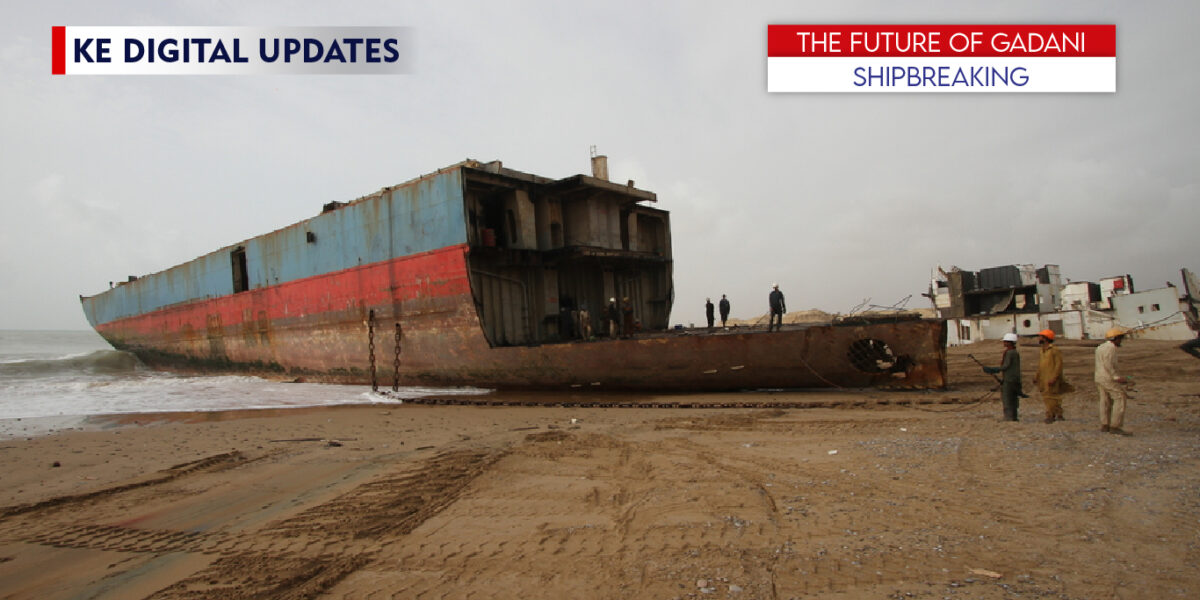Published on December 16, 2024
Once a powerhouse in the global shipbreaking industry, Gadani in Pakistan is now at a crossroads. This facility, once among the world’s largest, is grappling with the imminent risk of becoming obsolete. The looming threat is primarily due to the delayed response of Gadani’s recycling yards to the International Maritime Organization’s (IMO) Hong Kong Convention (HKC), set to take effect on June 26, 2025.
The Hong Kong Convention (HKC)
Adopted in 2009, the HKC aims to ensure the safe and environmentally sound recycling of ships. The convention mandates that all shipbreaking yards comply with stringent environmental and safety standards. After the cut-off date, non-compliant yards will be barred from demolishing ships, effectively putting them out of business.
Pakistan’s Slow Response
While other major shipbreaking countries have made significant strides toward HKC compliance, Pakistani yards have reacted slowly. This sluggish response has left Pakistan with no HKC-compliant yards as the deadline approaches, starkly contrasting to other countries with multiple compliant facilities. The complexity and time required to implement HKC-related regimes make it highly unlikely that Pakistan’s shipbreaking yards can meet the deadline, threatening to halt the industry once the convention takes effect.
The Importance of Continuous Operations
Continuous shipbreaking operations are crucial for the economic viability of HKC implementation. Other countries have maintained their operations while working towards compliance, demonstrating that ongoing activity is essential. Disruption in shipbreaking activities would make HKC compliance economically unfeasible and highly challenging for Pakistan.
KSEW’s Proposal: A Ray of Hope
At a recent symposium on the Safe and Environmentally Sound Recycling of Ships (SENSREC), the Karachi Shipyard and Engineering Works (KSEW) proposed a solution. KSEW suggested utilizing its shipbreaking facility to ensure operations continuity while Gadani yards work towards HKC compliance. Although KSEW can only accommodate smaller vessels, it presents a viable short-term solution to keep the industry afloat.
KSEW’s facilities can also serve as training grounds for staff, a core requirement of HKC. By leveraging these training resources, Pakistan can build a skilled workforce capable of meeting the stringent standards set by the convention. In the long term, this approach will prepare Pakistan for a future where dry docking replaces beaching as the primary method for ship demolition. KSEW is well-positioned to qualify for the European Union’s whitelist of yards meeting EU Ship Recycling Regulations (EU-SRR), potentially becoming the subcontinent’s first yard to achieve this distinction.
Collaboration and Collective Action
Given the time-sensitive nature of the HKC deadline, all stakeholders must collaborate to capitalize on the opportunity presented by KSEW management. Collective action is necessary to ensure the continuity of shipbreaking activities in Pakistan. The trade of shipbreaking holds significant economic importance beyond just supplying steel to rolling mills. It can potentially drive the development of a multi-million-dollar ship services sector in Pakistan, generating substantial economic benefits and granting the country greater influence in international shipping affairs.
Conclusion
The future of Gadani’s shipbreaking industry hinges on swift action and effective collaboration. By utilizing KSEW’s facilities and training resources, Pakistan can navigate the challenges posed by the HKC deadline and maintain its position in the global shipbreaking market. Ensuring the continuity of operations and compliance with international standards will sustain the industry, unlock new economic opportunities, and elevate Pakistan’s standing in the maritime sector.


